Are you tired of your day job? Being constantly doing the same thing over and over again, gets harass and scold by your boss frequently, and lost the passion, interest, and patience in the things you are doing almost every day?
Well, maybe you are not the “employee” type of person. You can be an entrepreneur, just like many millionaires and billionaires today.
Dreaming you say? Well, if you don’t fight for your own dream, someone else will hire you to fight for their dream instead, right? Just like what you are probably doing now.
If you think it’s time to stop this boring life, and wish to start your own business, read on.
You may feel depressed when you thought of the cost in order to start a business. Let me tell you, you can easily start an online business in Malaysia with just a little budget, effort, and time. Of course, maintaining it will take much more than your initial investment, but what you have now is already enough for you to get started!
This guide is updated for 2024.
It was about 8 years ago since I’ve written this article. It has helped tons of people to start their online businesses since then.
I think it’s about time to give this article a big update since a lot of things have changed since then.
If you’re reading this in 2024, you’re in luck as I’ve just updated with more content and a more detailed guide that you can follow, to make sure your online business is a successful one.
Use the index here to jump to the section.
#1 Registration of Different Business Types
#2 Business Banking
#3 Website, Hosting and Domain
#4 Advertising and Promotions
#5 FAQ
So, how to start an online business in Malaysia in just 1 day?
When mentioning online business, most people will think that “I just need to build a website and sell things”. That is not wrong, but there are actually a few types of “online business”.
First, determine what you want to “sell” and your business nature is the first thing you need to do to get your business online.
1. You can sell physical products, like phone accessories, through your e-commerce website.
2. You can sell services that you are capable of doing, like painting, through your portfolio website.
3. You can sell other businesses’ products and take a percentage of the sales as your commission, something like an affiliate or reseller.
4. You can sell information products, by putting together your knowledge, skills, or ability to sell them as eBook or video courses.
5. You can do dropshipping, where you don’t keep any inventory by simply passing the sales to the dropshipper or supplier.
6 You can sell concept or prototype by starting a campaign in Kickstarter or Indiegogo.
Need more online business ideas? Check here.
So, decide on which way you would like to conduct your online business in Malaysia, then you are good to go!
Business Registration, Business Name and Category
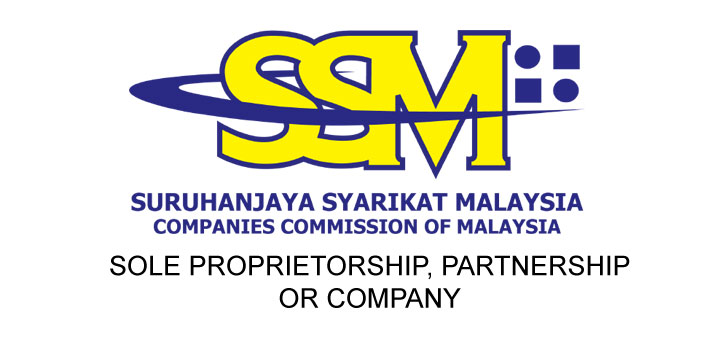
To start a “legal and valid” online business in Malaysia, you will first need to register your business with SSM (Suruhanjaya Syarikat Malaysia).
You can now register a new business online!
Visit SSM EzBiz Online to register a new business, renew your current business, make changes or even terminate business.
Save a lot of hassle as compare to over-the-counter.
There are different business types, with their own set of pros and cons.
1. Sole proprietor
You will run and manage this business alone, your business liability is also your personal liability.
You can choose to register the business under your full name for RM30/year, or a business name like “Jumix Design” for RM60/year.
Pros
- All the profits are your own.
- Easy to manage as you have no other shareholders or partners that will affect your decision-making process.
- Inexpensive and simple to start up.
- Low cost to maintain, as there’s no need to hire a secretary or auditor.
Cons
- Hard to get a loan from the bank.
- Your business liability is your own, which means you are liable to the risk that your business partakes in.
- Not having a partner and shareholder also mean you don’t get help from others and operating as a lone ranger.
- Unable to tender for government projects.
- Harder to secure deals with big companies as they tend to work only with established LLC or Sdn. Bhd.
- Higher tax amount of % when your business income is high
2. Partnership
You will operate the business together with 1 or more of your partners. All the partners are bound by the liability of the business.
Take note that if one of your partners decides to quit in the future, your business will be abolished and you will need to register a new one should you wish to continue the business. Partnership registration is RM60/year as well.
Pros
- Sharing equal profits among you and your partners
- You have extra sets of hands and minds to help you
- Easy and simple to set up
- Inexpensive to get started
- No account audit needed
Cons
- Your business liability is still your own, although now it spread across all your partners
- Profit-sharing across partners can become really small if you have a lot of partners
- Decision making can be slow as you have to consider the opinions of every partner
- You still get tax individually and it’s higher than a Sdn. Bhd. when your business income is high
3. Limited Liability Partnership a.k.a LLP
This is similar to a partnership but enjoy some benefits of a Sdn. Bhd. For starters, you get limited liabilities. LLP is also a separate entity like a Sdn. Bhd. It costs less than RM550 to set-up and around RM200 to renew yearly.
You can register a LLP online here: https://myllp.com.my/
Pros
- Separate entity and limited liability
- Lower tax rate as compared to a sole proprietor and traditional partnership
- If a partner leaves the LLP, the LLP can still remain unlike a traditional partnership
- Cheaper and simpler to set-up as compared to Sdn. Bhd.
- No maximum limit of shareholders (Sdn. Bhd. has a limit of 50)
- No accounts audit needed like Sdn. Bhd.
Cons
- You can’t convert LLP to a Sdn. Bhd. in the future, you will need to wind up first and set-up a new Sdn. Bhd.
If you need more information about LLP, I find a very comprehensive guide here which you can have a good read if you’ve determined to go with a LLP.
4. Company a.k.a Sdn. Bhd.
This is when things get complicated. If you would like to have a separate entity from your business, company is the way you should go. However, the fees and applications are more complicated than the 3 mentioned earlier.
Pros
- Separate Entity
- Limited Liability
- The ability to issue shares
- Ability to get equity financing
- Easier to raise fund from Venture Capitalist, Angel investor, and other investors
- Look more reliable and established
- Lower tax rate as compared to Sole Proprietor and traditional partnership when your business income is high
Cons
- Costly to set-up, prepare to fork out at least RM4,000 – RM5,000 a year, including registration, secretary retainer fee, audit fee, tax filling, etc.
- The registration process can take some time and must always involve a company secretary
- Account must be audited every year
Once you have decided on the type of business, decide on your business name. You can use a different name with your actual business, eg. You register “Tan Accessories Enterprise” with SSM, however, you can name your business “Tan Mobile & Accessories” on your website and it doesn’t matter. Visit any SSM branches or their portable counter to register.
Another important thing to take note of is your business description and category that you write on the SSM registration form. Do not put any description or category that has nothing to do with your business. You might want to broaden your field a bit like if you sell Power Bank, you should put “Mobiles & Accessories”. If your business description in SSM registration is not relevant to your website, you may encounter some problems when you apply for a payment gateway later.
Business Bank Account
Once you have your business registered, the next step to start your online business in Malaysia journey is to go to any bank of your choice to register a business Current account.
Opening a Current Account is important as some payment gateways do not accept a Saving Account as the recipient if online payment.
You can always walk-in to any local banks and ask to open a business current bank account, and they will link to a personal banker who is responsible for business banking.
Remember to also ask for a merchant terminal facility if you’d like to also accept offline payments like credit and debit cards. Some newer terminal allows you to accept E-wallet payment like Grab Pay, Touch ‘N Go ewallet and Alipay as well.
This process usually takes about an hour or two, depending on the traffic and efficiency of the bank that day. Remember to go before 4PM on weekdays!
Build a Website, Get Hosting, Domain Name and Email Addresses

Domain Name
Now you have a legit and proper registration of your business, you are set! You can now kick start your online venture by getting a domain name for your business as well as email addresses!
What is a domain name you may ask? Every website or internet business must have a domain name that people can recognize and remember. For example, jumixdesign.com, and that’s the domain name for Jumix!
Well if a .com is not available for you, you can always opt for .net, .biz., .info, or even get creative like .digital, .photography, .store and some other gTLD.
The price of a domain should be something around RM65~RM300.
Special gTLD like .photography or .clothing would be more expensive than the common ones.
Register for your .com domain here at only RM86/year.
How about .com.my?
As you have already registered your online business in Malaysia and have your very own unique business registration number, you can also register a .com.my domain which will look more localized, relevant, and credible in Malaysia.
As of June 2024, Mynic now limits certain domain registration that can be provided by reseller.
Meaning, for domains like edu.my, gov.my, biz.my, you can only register via Mynic official registration portal at PRIME.
Web Hosting
Hosting, on the other hand, is the disk space you need to “rent” on the Internet to store your files. As your website design and images are all files, you will need a place to store and display them, and that is where hosting comes in.
You can basically get your domain name, hosting and email address from a Web Hosting Company, or a web design company that already included all these like us.
You might wonder which hosting plan to go for.
The easiest way is to just sign-up for shared hosting which costs less than RM350/year to be your starting point. You can always upgrade later when you feel your website is sluggish or when you run out of resources.
Start small and slowly pick-up from there.
Design Your Website and Add Your Content
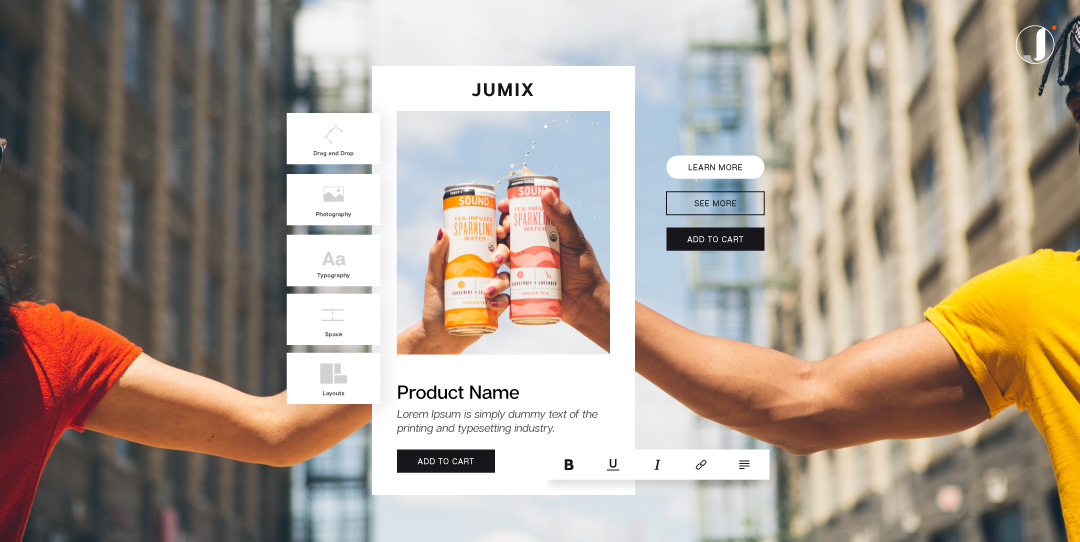
After your hosting and domain name is ready, which takes approximately 1-2 hours to activate if you pay by credit card (make sure to choose a reliable hosting company), you can then start designing your website and add in your content.
If you have no knowledge of web design but are willing to try it out on your own, there’s plenty of free html templates available for you to download and use. Alternatively, you can also use the Web Builder built-in with some hosting plans (some may have, some don’t). These web builders are usually easy to use, however, the design quality and your SERP (Search Engine Result Page) is not guaranteed!
If you are not sure what you are doing with these templates and builders, it is always advisable to outsource the design and development work to a web design company.
Corporate Website
Any online business in Malaysia also needs a website.
A corporate website usually displays images and content of a company but has no intention of carrying out sales on the website.
This corporate website is good to use as a digital branding of your business. Some may ignore this and opt for a social media account only like a Facebook Page, but let us tell you why a website is much better than just a Facebook Page here.
Important pages of a corporate website include Home, About Us, Services, Products, Clients, Contact. You can always add more if you have more content.
eCommerce
If you intend to sell online and receive payment directly from your website, then you will need an eCommerce website.
An eCommerce website usually consists of a shopping cart feature and payment gateway. These features are essential to run your online business on a day to day basis.
If you are going to build an eCommerce website, make sure to prepare the following content:
- Privacy Policy
- Shipping Information
- Refund Policy
- About us
- Contact and Company Info
The above information is necessary to be displayed on your eCommerce website if you want to accept credit card and internet banking payments on your website.
To do that, you have to integrate a payment gateway, like iPay88.
After that, you can sort out the shipping facility by engaging with a logistic/courier company like GDEX, Poslaju, DHL, Skynet, Ninja Van and etc.
If you’re someone who is familiar with Shopify and want to use Shopify as your eCommerce platform, you can also check out our Shopify design and set-up service here.
Marketplace
Marketplaces like Lazada and Shopee are getting more popular in recent years as the platform for new online sellers.
If you just want to get started quickly and don’t mind the commission and restriction these marketplaces put on you, then you can consider getting started from there too.
I don’t really recommend putting all your efforts into the marketplace, as you don’t really get to collect your own customers’ database and your branding is not prominent there. But you can always use it as an extra channel to distribute your products.
Be wary of listing fees, commission, admin fee, sales tax and some other fees that these marketplace may charge you.
You need to work out your margin properly before enlisting your products on these marketplaces.
Information Product Website
If your product is actually information, like courses, tutorials, eBooks, or videos, you can use a different platform to sell your content.
The Maker of Brands is by far the most complete and easy to use’s platform to build your website to sell your information product.
It has a pre-made template for you to use, and then you can just drag and drop and edit the text and images to fit your business.
If you opt for the higher tier plan, it also comes with a membership system as well as a newsletter blasting system. Everything comes under one roof for easier management.
If you’re a coach, trainer, agent, author, or network marketer, this can be the best way for you to start your online business.
Website Content
Content-wise, make sure you do not spam irrelevant information on your website. Keep it simple, clean, and straight forward. Additionally, avoid using too many images which may slow down your website loading speed as visitors tend to quit a website that takes more than 7 seconds to load.
Read here for 7 tips to speed up your website.
By law, all new online business in Malaysia should comply with the new Personal Data Protection Act 2010 (PDPA), so make sure to include the proper terms in your Privacy Policy page.
If you are also targeting EU customers, make sure your policy compliant with their GDPR as well. Having PDPA is not sufficient to cover EU customers as there are some requirements in GDPR that are not included in PDPA.
Click here to check whether you are ready for GDPR in Malaysia.
Do note that as of 7 May 2020, Rule 13 and Rule 13A of the Business Registration Rules 1957 to require all online businesses to display the name and registration number on the website. Failure to comply with this legal requirement may result in penalties imposed by the Companies Commission of Malaysia (SSM), where you can get fine or even imprisonment.
Once you have done adding all the essential content to your website, congratulations, you now have a working and proper online business in Malaysia and you did it in just a single day!
Give yourself a big round of applause!
Advertising and Promotions

The common scenario of a new online business start-up is not getting sales and visitors. Well, you can’t expect people to come into your website automatically by just doing all the above, as even you are operating offline, you need to TELL people about it, right?
Hence, it’s the same theory as ANY online business. You need to advertise and promote to let people know about your business and the products or service that you are offering.
To advertise and promote your products and services online, there are several methods. You can use the most popular methods like Facebook advertising, Google AdWords advertising, Email Marketing, SEO, Editorial post, Ads buying, and so on, whichever works best for your business nature. Offline advertisements like TV advertising may work too but it’s more expensive.
I’d add some brief information about what and how each of the mentioned methods can help you.
1) Facebook Advertising / Instagram Advertising
Facebook advertising may not be new for some people, but it’s still quite cheap for it’s ‘Pay per click’ cost.
The organic reach of Facebook is dead, it has become a pay to win platform right now. So if you’re investing your content on Facebook, make sure to spend on Facebook ads as well to maximize your reach.
I’ve written more than 10 articles on Facebook advertising, which include topics like How to Afford Making A LOT of Mistakes in Facebook Ads, 3 Keys to achieve Outstanding Facebook Ads, and many more.
If you’d like to learn more about Facebook Ads, then head over to the above topic or consider hiring experts to do it for you.
2) Google AdWords and YouTube Advertising
Google Shopping becomes more and more popular in recent years with the rise of eCommerce trends. Google Search and Display ads are still working fine but they can be very expensive in some industry where it’s highly competitive.
If you have an eCommerce website, investing in Google Shopping ads can help to secure your first few sales when you have no traffic at all.
A lot of changes are going on YouTube, where we now have YouTube shorts which are vertical video format.
There’ll be more ads and Paid Accounts that have no ads. Video ad works best in YouTube and if you’re producing video content for your business, make sure to advertise on YouTube ads to get more views and exposure.
3) Email Marketing
Building your own subscriber base can be tedious and time-consuming, but it will be worth it in the end.
People who willingly opt-in to become your subscriber and choose to stay, tend to have a higher conversion rate than a complete stranger.
“Once they say yes once, it’s easier for them to say yes again.”
While running ads and growing your website, make sure to grow your subscriber base as well by collecting email addresses.
4) SEO
There’s more than one method to make your website appear in Google Search Result. For one, there’s Google AdWords. Two, there’s SEO (an acronym for Search Engine Optimization).
SEO is a long-term effort that consists of activities and link building that may eventually help your website to rank higher in search results.
There are 2 major components in SEO – Content and Backlinks.
I’ve covered Content earlier in this article, backlink is how you get other websites to link back t your website. Like placing a link on Wikipedia or getting a viral news website to link back to you.
If you’re totally new to SEO, you can click here to read 10+ SEO articles I’ve written in the past.

So, got your online business in Malaysia ready?
Now you’ve got it all covered. Stay passionate in your business and be persistent in your effort, you might become the next outstanding entrepreneur in Malaysia!
FAQ
Over the years I’ve received tons of emails and also calls that ask the same questions. So I’ve added this FAQ section to answer these questions!
1) If I’m only selling on social media, do I need to register my business and also declare tax?
Yes, you need to do both.
2) If I don’t have a website and only getting income from Google Adsense, do I need to register my business and declare tax?
Yes, you need to do both.
3) I’m a foreigner and want to conduct online business in Malaysia, what should I do?
If you have a physical presence here and conduct the business operation here in Malaysia, you need to register.
If you are not physically present here and do not conduct the operation here, you do not need to register.
4) I run an affiliate business and I do not register my business since I only have a blog, will I get into trouble?
Yes, you have to register as a business. If you don’t, you still have to declare the affiliate income as an extra income, which is taxable.
5) Do I need to register my online business in Malaysia first before starting my website?
You don’t, you can do both at the same time. Unless you must have a .com.my domain, else you can always sign-up for a website and a hosting plan first before registering your business.
Updated July 2024 –
- Added link to register business online
- Added new platform for eCommerce
- Update .my domain registration procedure
- Update YouTube shorts
- Added Rule 13 of SSM rules
Updated Feb 2020 –
- Added link to register LLP online
Updated Nov 2019 –
- Added different ideas of business
- Added pros and cons of different business registration
- Added LLP
- Added brief of each advertising and marketing strategy
- Added FAQ
- Elaborated hosting and domains
- Added GDPR
Updated Jan 2017 –
It’s highly recommended you start off with an eCommerce website, you can learn more about eCommerce here.


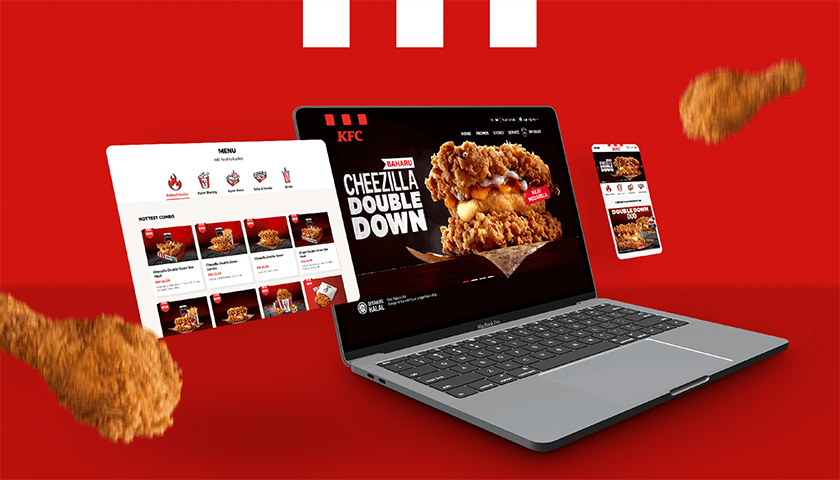

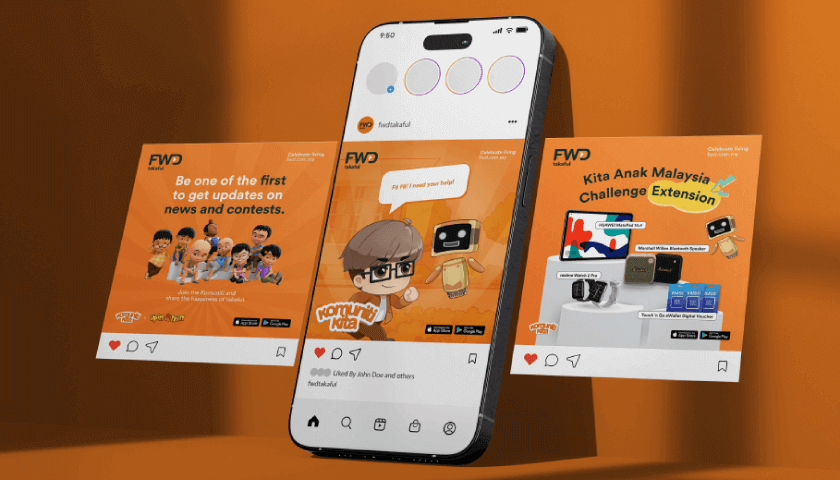
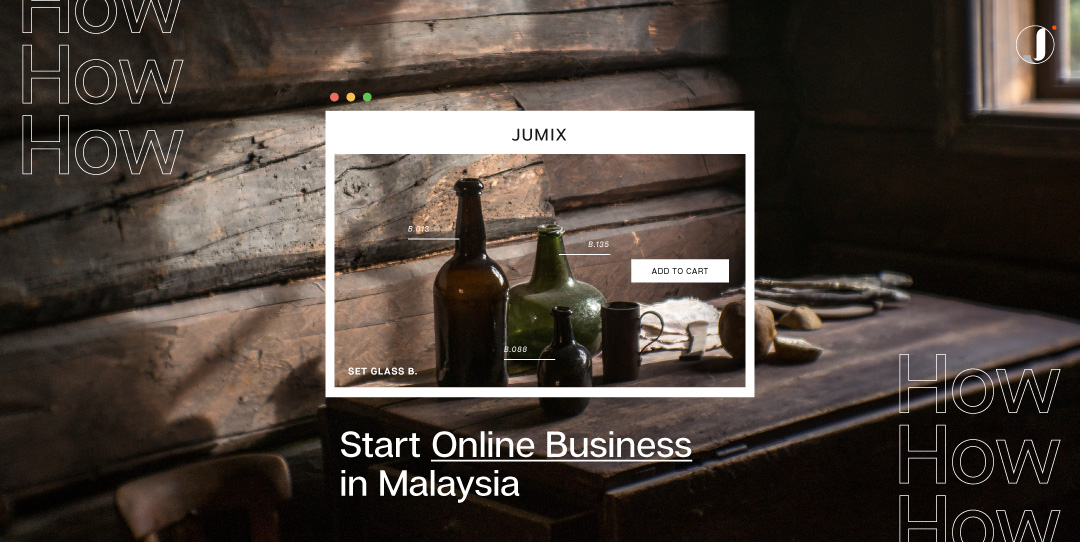


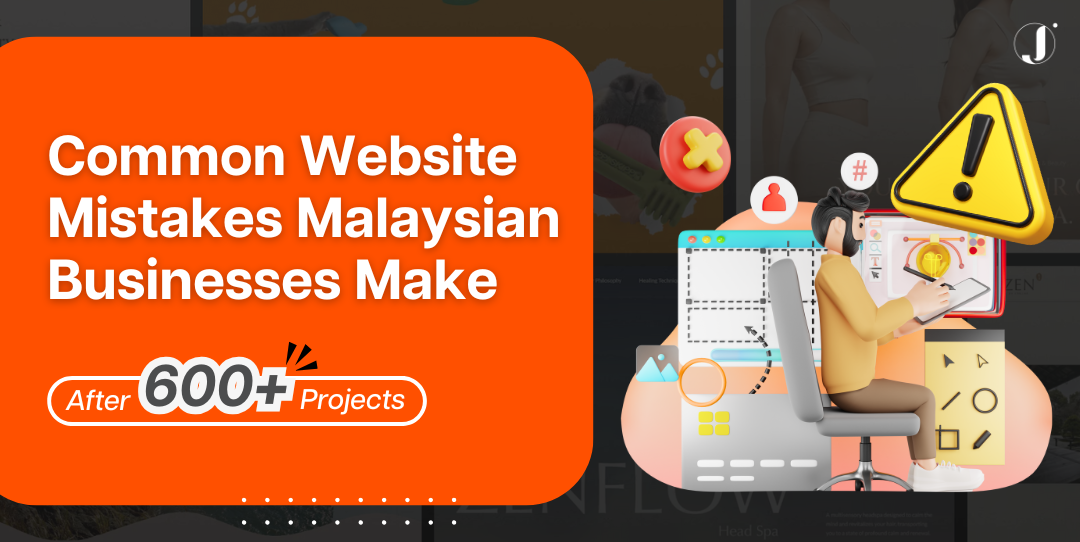
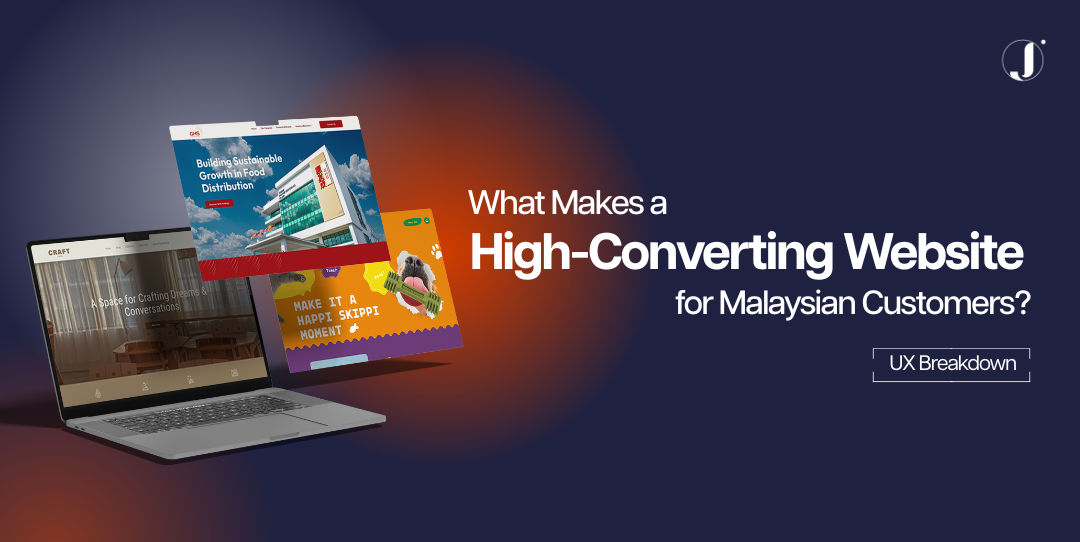
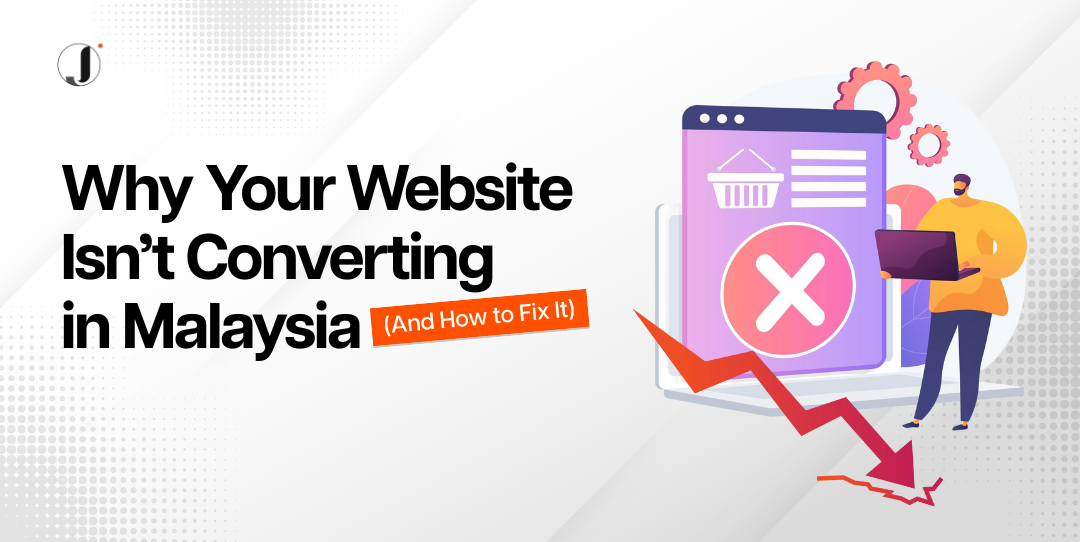
68 Comments
sir,
I am from india. And going to malaysia for job search. Can i do business online?
Kindly. Is it legal to open a business through instagram and facebook without registering? And using personal.account and home address?
Does it consider home business? Thank you.
Hi Shumoos,
It is actually illegal to conduct any kind of online business (whether you sell through Instagram/Facebook or your own website without registering your business at SSM.
Hii, I know this is a really old post but I have some questions, let’s say I register my business as ABC (think for formal name) can I use a different more fun name for my insta page? Or does it have to be the registered name ya? Cos I’m opening an online biz soon and I have a quirky name but sad that it might not be formal enough for an ssm. Thank you really appreciate if you reply.
You can have a different name, you don’t need to put the name of your registered business as your IG page.
I have a very important question. If i am living Spain, I have created a company in Malaysia and my business it is about online service in Chile, I HAVE TO PAY ANY TAXES??? i have to pay something?
i am very worried about the taxes that i have to paid for create a company in Malaysia. Thank you and sorry for my low level of english
Hi,
Are you running the business in Spain or in Malaysia? Your business physically run in Malaysia or in Spain?
Thank you so much for the detailed post. I am confused if it doesn’t trouble you please answer some of my questions here. Actually, is online business and physical business has any differences in the process of registration or rather, the “type” of registered name? If I own a physical store with registered name do I need to register the name as an online store again? Thank you in advance.
Hello,
No you don’t need to register the same name again for your online store.
If you are talking about domain name, you should use back the same name you use for your offline store so people can easily recognize your business in online.
The business name you registered with SSM is not important.
Great post..May I seek some advice from you?
Hello, feel free to contact us via our Contact page.
Hi, what are the procedures for a foreigner who wishes to have a business for online language lessons, via Skype? The lesson will be sold to people globally. If that person is currently living in Malaysia, do they need to register it in Malaysia and are they responsible for paying taxes on it in Malaysia as well? If so, is there are differences between a foreigner registering an online business and a local?
If you are running the business in Malaysia and sell it globally, yes you need to register as a business in Malaysia and subject to Malaysia’s taxes. As a foreigner they will request more documents from you and also paid-up capital.
Hi, as far as I understand, registering a sole proprietor with SSM only applicable to Peninsular Malaysia. East Malaysia’s sole proprietor could not register with SSM. So how to conduct a legal online business in East Malaysia?
Hi Jennie,
East Malaysia business law is slightly different than West Malaysia.
You can call this number 088-233 551 or email to rosnah@ssm.com.my, which is the SSM branch in Sabah.
Kalau begitu, macam mana pula nak buat bisnes melalui bank?
Hi Abdullah, apa maksud melalui bank? You nak apply Payment Gateway ke?
Anda boleh rujuk sini: https://jumixdesign.com/e-commerce-solution/payment-gateway/
kalau dh ada ssm so boleh start business on Facebook ? kna buka account baru ke
Ya boleh, boleh pakai account yang sedia ada juga.
Hi, to start an online business, is it necessary to register a company’s account number or I can use my personal account?
Hi, yes to be legally run an online business in Malaysia, you have to register your business and get a Business Current account. This way your business will have more credibility too.
Hi, I want to open a fashion online store, may i know what legal issues i should look for? such as the copyright law, etc…etc…
Hi, we need more details to advise you on this, you can contact us via https://jumixdesign.com/contact-us/
As a foreigner in Malaysia, can register as Sole proprietor to open online store?
Hi Julie, no as a foreigner you cannot register as a Sole Proprietor in Malaysia. You’ll need to find 2 local Malaysian and open up a Sdn Bhd company instead.
Hi! I want to do an online business and the form is asking for alamat perniagaan. Do I put my home address? Many thanks!
If you have an office, put your office address. If you are working from home, yes you can put your home address.
this information helpful. Thanks
hi. if i was going to use instagram as my operation base and not a personal webpage, would i still need to register with SSM?
yes
wat r the sources to get physical products supplier such as cosmetics from korea or the us?
As an international student in Malaysia, can I do an online business? Since we aren’t allowed to work. Thanks
your post was really helpful.Thankyou!
I am a foreign citizen residing in Malaysia.I am married to a Malaysian.
I am in the process of setting up an online business and was wondering if I can start a partnership with my husband?
What about those who sell services through Fiverr or making ads revenue through Youtube? Do we have to register too?
Hi Tan, yes it’s recommended that you register a business and submit your income stream from Fiverr and YouTube. Legally speaking, you have to report all your income to LHDN.
Hi,if I want to teach people drawing,can I use my home address to apply sole proprietor as alamat perniagaan.
Hi Eric, yes you can.
Just want to check if a Singaporean keen to set up a café cum bakery in Malaysia, what is required and to start from basic? And how long will the process needed?
Hi Julia, the best way would be come over to Malaysia, get a secretarial firm to settle all the required documents for you. The whole process should take about 1 month or so.
can an international student in malaysia open an online business? can they also register SSM as a sole proprieter?
For sole proprietor, very unlikely. You can consult a secretary firm to enquire about this, most probably you can open up a single director Sdn Bhd company.
Hi, i would like to ask, i running a freelance designer business (Sole proprietor/ Partnership). Do i need a commercial address for register? if i only run the business through online (facebook).
To be legally running the business, yes you need to register it, no matter where you run the business, online or offline.
Hi! Sanz,
I’m contemplating to do online business in food . Any advice?
Hi Mohammad, yes just go ahead, why not? We see more and more food and restaurant business coming in to online business these days.
Hi,
I already registered my business and now I want to do an online business.
Is there any other procedures that I need to follow for online business registration after I buy the domain name?
Hi Fatin, next step would be getting your website design. My company can help you on this, feel free to get in touch if you are interested. There’s no other legal procedure you need to go through for running online business, unless you are dealing with sensitive items, such as medical products, health supplement etc.
hi, i have done online business for 2 years without SSM registration.
I wish to register SSM this year but i have concern on tax submission.
Will income tax look for me due to previous un-submitted company tax?
That depends on the volume of your business. Anyway, to be legally running a business, you have to register with SSM as well as do your taxes. Back-date your taxes for the last 2 years also, as during audit from LHDN, they will check back the past 7 years record. Consult a tax consultant for further information.
Hi , I would like to register my small business which namely differ then my actual name .example business name mobileshop buy and sell & repair and my name jahir , which registration required for running this type of business ? 1. Sole proprietor ?
You can register as sole proprietor, by using Trade Name. It will cost an extra RM30 or so, for more accurate cost, you need to check with SSM Malaysia.
Hi, I like your content you shared in here, very nice and informative.
Thank You for Sharing with us.
Sir
I am Shamim.I came here by student visa.Now i changed my visa category.I want to start a online business here.How can i start a online business,kindly tell me
Thanks
Hi,
If I (Malaysian) were to do freelance software development in Malaysia, and the business is coming from outside of Malaysia, is sole proprietor registration enough for that?
Thanks
Hi Michelle, yes a Sole Proprietor is enough for that.
This is awesome Sanz. Thank you. We already use so many of these tools because of you.
Hi,
I would like to thank you in advance for answering this question of mine. If we engage in online business such as affiliate marketing, fiverr service, and drop shipment service, what are we going to write as business description/activities on the application with SSM? Can I write “online business” to cover all these services? Or I need to open 3 online companies? Another related question is that if we run an e-commerce or drop shipment online business, which cover wide ranges of products from fashion to sports, to household and IT products, can I just generalize them as online shopping mall, or I really need to register each company for each non-related business of different category?
Thank you again for your kind advice!
Hey Ng,
You could just register 1 business and cover as much as you can under the description field. Same goes to your eCommerce business.
After registering our e-commerce business with SSM, it is a compulsory to apply for business license in Malaysia? Can we do without business license? Any obstacles faced in applications for example business current account etc. without business license.
You are registering for business license when you register with SSM.
I register ssm for online business already but how to i know my business license number?Because i need to apply for the gkp 2020.
You get the number from the SSM certificate itself (Form 9).
Hi,
I has a plan to start my first online business for drop shipping modal (Shopify) and selling product in my new setup Facebook pages.. currently still in the setup stage.
Therefore I may need register for SSM purposes to open a business bank account and PayPal business declaration, but I didn’t have these experience before..
So that I need your advisable for register the business organisation (SSM). Is that the ‘Enterprise’ would be suitable in my modal? Eg.: DM Online store Enterprise
Appreciate your answering this question and Thanks you in advance..
Hi, you can read the business model section to determine which type is most suitable for you, because only you know how you manage your partners and share arrangement.
Now it’s convenient to register your business online, you can use this link here.
Hello Sanz,
I’m trying my hands in entrepreneurship and will head down to SSM soon. But would like to get some clarifications so I can prepare myself.
1. I’m still exploring ideas (may want to do a few small things), is 1 business license enough? Eg planning to open up store on Lazada, and maybe in a few months might want to sell home cooked food over social media/website.
2. Regarding the above, i’m assuming we need to state the nature of our business right. So say during registration, i put down the online shopping/electrical stuffs etc (Lazada store) but did not mention anything about food, will I be able to use the same license? (IF the answer to question 1 is YES, 1 license is enough)
Thanks!
T.Lee
Hey Lee, you will only need 1 business license, just make sure your business description is as wide as possible, something like you want to create an online marketplace with multiple categories.
Hello Mr Sanz, hope trust you well. I am Malaysian and currently work in Qatar. Recently i just done build my online store under shopify platform. My question is as a Malaysian can i register my online store under USA based ? or i can do also under SSM? i mean what is different ? I am also wanted to sell to big 5 country and what is EIN number?
Hi Maya, that depend on where you open your company bank account, if it’s Malaysia then you register with SSM, if you open elsewhere then register at elsewhere. I’m not sure what EIN number is, it’s better you check with the plafform provider.
Comments are closed for this article!